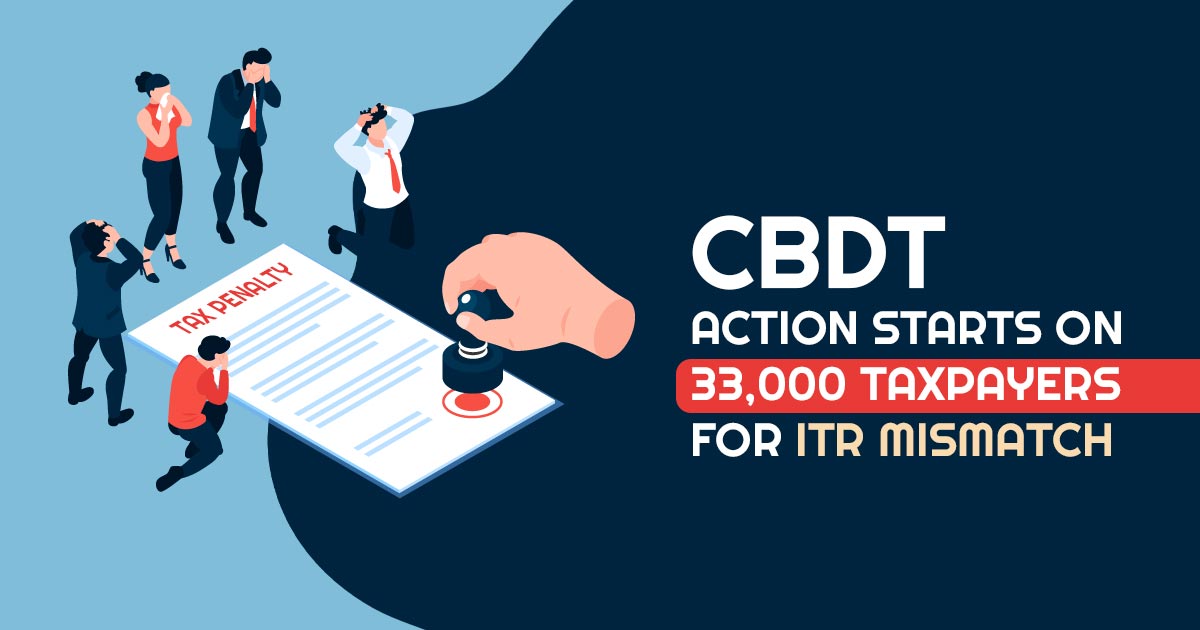
Due to underreporting of income on tax returns compared to the Annual Information Statement for the fiscal year 2019–20, the income tax office has reportedly identified some 68,000 instances of e-verification. The e-verification technique comprises notifying taxpayers of any anomalies between their financial activity and the Income Tax Returns filed.
In around 56% of the cases, or 35,000 cases, the taxpayers acted correctly by either filing an updated tax return or replying to the notification.
There are still 33,000 further incidents that need to be handled. The deadline for filing modified tax returns for income received during the 2019–20 fiscal year is March 31, 2023.
Taxpayers can respond to the tax department with justifications or file amended tax returns if the mismatch mentioned in the e-verification notification is accurate. The e-verification system is an automated, non-intrusive process that encourages voluntary compliance and can help lower litigation.
A taxpayer has 15 days to respond after receiving electronic notification from the income tax division that their case has been chosen for e-verification. Each e-verification case is intended to be resolved by the CBDT in 90 days or less, however more difficult cases may take longer. The pilot program started in September 2022, and the e-verification mechanism entered into action on December 13, 2021. The deadline for filing revised reports for the 2019–20 fiscal year is March 31, 2023.
The Central Board of Direct Taxes (CBDT) Chief Nitin Gupta recommended assessees regularly review their AIS and report any mismatches to the income tax department.
On 4th February, the Income Tax Department released an FAQ on the e-verification Scheme.
“The FAQs on the e-Verification Scheme, 2021 aim to provide general guidance in understanding the procedures and processes of the e-Verification Scheme, 2021 issued vide Notification no. 137/2021 dated 13.12.2021. These are presented in an easy-to-understand manner without using the technical wordings of the Income Tax Act, to the extent possible”, the document remarked.
“These FAQs are informative and advisory in nature and are subject to updates as required. These should not be used as a basis for any legal interpretation of the e-Verification Scheme, 2021 or the Income Tax Act, 1961. The taxpayers may like to take an informed decision on their tax matters in this regard”, it was further rejected in the section of the notes of the FAQ.









For A Y 2022-23 when can I submit updated return under Section 139(8A)?
You can submit updated Return for AY 2022-23 till 31st march 2025